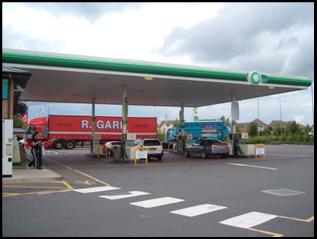There's been lots of fuss about pay-as-you-drive proposals recently. Is this because drivers are being bullied by the tax man? Or is there a justifiable reason to put a price on motoring?
Road Pricing sounded like a welcome mechanism to abate the increasing sprawl of traffic and traffic jams, when it was suggested a while back.
With the emergence of proposals in the national road pricing scheme, this now raises some concerns.
Primarily, unadulterated surveillance appears as a most frightening motivator of reaction. Add in the increased cost deterrent of pay-as-you-go driving, and it is unsurprising that the car-owning British majority don't fancy paying more to drive, or change their vehicular habits in any way, given the choice.
This is reflected by the 1.5 million people (and growing) who have signed this petition against road pricing, assisted by momentum of email circulars and media exposure.
Personal privacy is a contentious issue, nobody wants to be surreptitiously watched, especially not criminals. The wide-scale deployment of Electronic Vehicle Identification (EVI), and Automatic Number Plate Recognition (ANPR) technologies is understandably likely to evoke a hair-raising Orwellian fear, because the future capabilities are comprehensive: Knowing exactly where a driver is, could be use to "catch out" a typical driver in various ways. People don't like change anyway, and road pricing is clearly going to be a Weapon of Mass Taxation, but as a trade-off for being watched all the time, could there be benefits to such a system?
- Deterrent for stolen cars / joy riders to avoid surveyed areas?
- Evidence & facts of vehicle movement data to use in court?
- Speed limits actually enforced? Making for less intimidating cycling conditions.
- Theoretically, stolen cars easier to identify and locate.
- Challenges the mobility of criminals (e.g. stolen car used in bank robbery has its route tracked, and occupants observed by CCTV?)
- Expense of driving making drivers begin to consider which journeys NECESSARY to drive, not just EASY to drive.
- Potentially less vehicular congestion, as car use is positively affected by increased cost.
- Knock on impact of less carbon emissions, from some reduced vehicle use.
 ANPR already in use.
ANPR already in use.
Why do we need road pricing anyway? The well documented answers include the intolerable inefficient traffic congestion on the roads, and the collective decision to ignore the fact that vehicles output pollution, willingly overlooking that inconvenient truth.
Let's face it, personal vehicles are comfortable, air-conditioned, personalised, isolation pods, which GO quickly, but don't necessarily get to places quickly.
Cars are shiny, attractive, desirable; everything the driver is not - after years spent flopped at the steering-wheel nibbling travel sweets!
My alternative viewpoint to the question Why do we need road pricing anyway? Is this; There needs to be some kind of consequence to the effects of driving, which currently are not taken in to account in any significant way. For example
Human Error - the 3,000+ deaths and 270,000+
casualties each year (over 5,000 every week!) are a direct result of driving, and there is no REAL sense of punishment or consequence because UK courts are notoriously too lenient on British drivers as a trend.
Environmental - Yes the road tax (Vehicle Excise Duty) has a scale based on CO2 emissions g/km, but as argued in this
Proposed Road Tax post, there is currently nowhere near enough disincentive. At present Vehicle Excise Duty is completely impotent at pushing its CO2 message.
Health -
Childhood asthma caused by traffic - How does each driver face the responsibility of their contribution to these health problems?
The above are sometimes indirect products of vehicle use, and thus hard to pin down, locate, and make the originating driver accountable.
At least with road pricing there is SOME kind of consequence to the chosen quantity of individual vehicle use.





